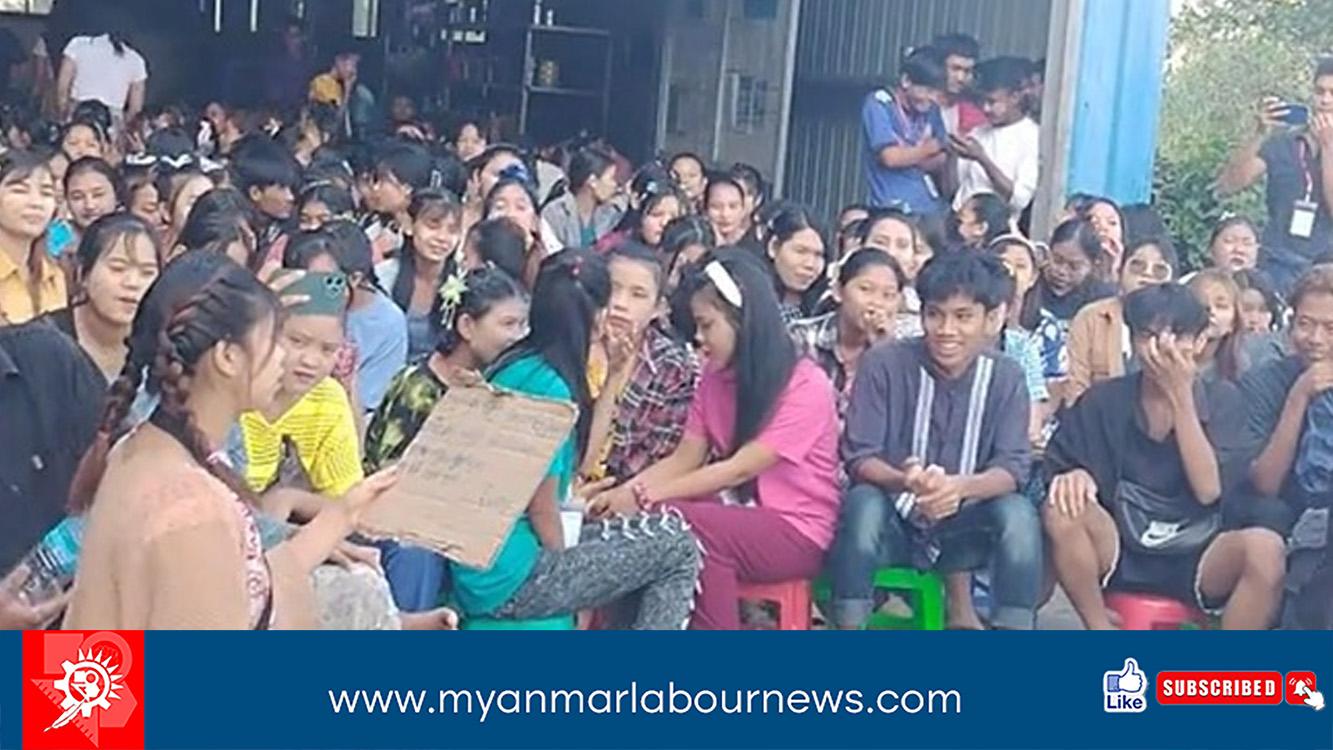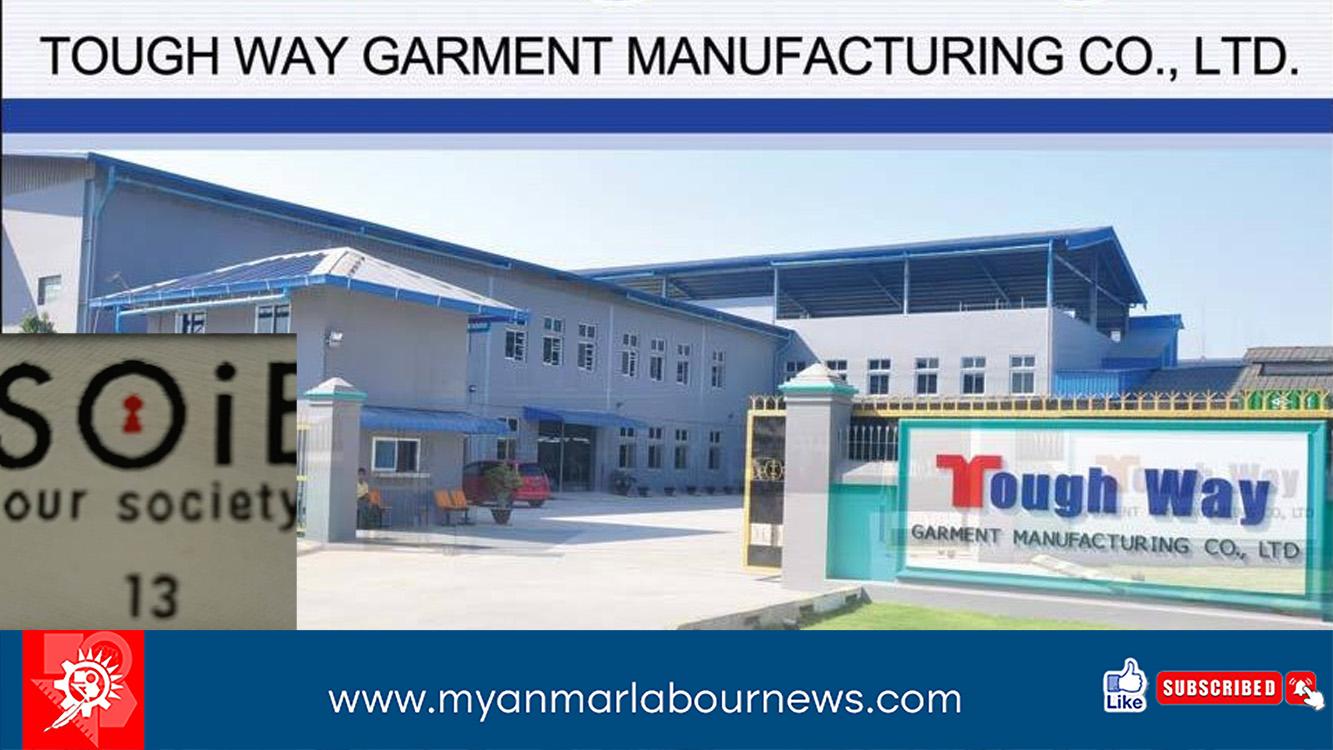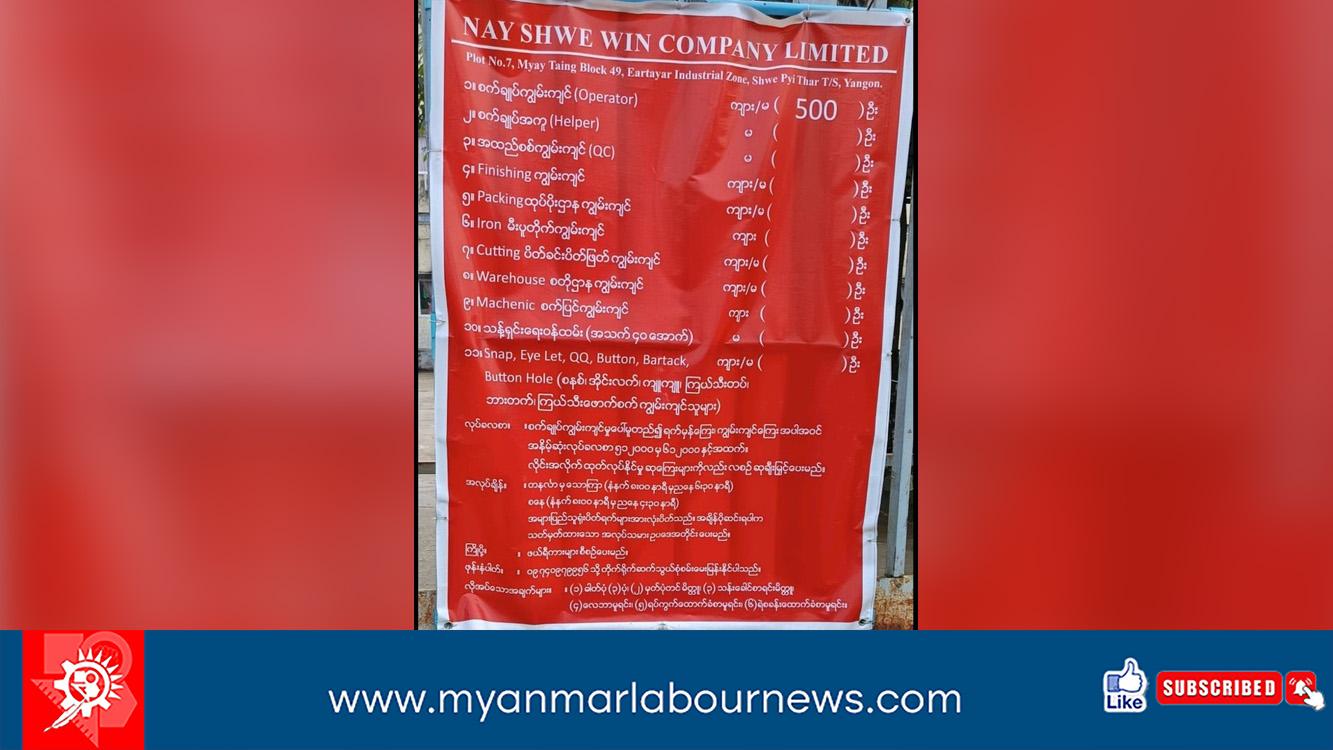According to labor activists, workers in most factories are being forced to work overtime because the Department of Workshop and Labor Law Inspection has failed to conduct regular inspections of factories.
“OT (overtime) is inspected if reported. If not, for example, let's say when it is mentioned in the media, then they should check it. In WF case, it was thoroughly investigated before the lawsuit was filed. Now, in the industrial zones, for example Kaw Htike 5 the OT issue is also discussed. The labour said she can’t and ask for a rest. She is also fired for asking a rest. They inspect only after it. But the HR taught them to not talk about overtime. But the labour who didn’t know that talk about overtime and the chief himself said that it was a moral downgrade for the factory. In addition to neglecting the work they should be doing, they patched up the business owner. So, why are they still inspecting?" I mean they inspect the employer and want to personally attack us by saying overtime does not exist. For us we want to prove of its existence.”, said by a labour activist.
At the Kaw Htike 5 HUBO Garment factory, the labours informed STUM that they were unable to work overtime because their hours of overtime do not match the overtime they receive, even if they are tired and sick because of the overtime, they are unable to continue working.
In addition, most of the other factories are being reported that they have been continuously calling for overtime. There is a rise in the number of labours who became sick, weak and dizzy because of being forced to work all night without a day off without their desire.
Even though they had to work overtime unfairly, they did not receive full overtime pay. It is reported that employers and factories continue to violate labor rights, such as forcing to work overtime by unfairly demanding clothing standards, not allowing to take day off even if they are sick, and firing for not working overtime as the labours feels unbearable.
It is reported that these issues have become more frequent due to the failure of the Department of Workplace and Labor Law Inspection to conduct casual inspections.









